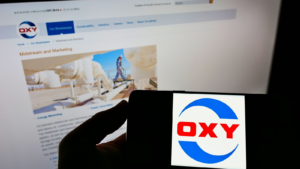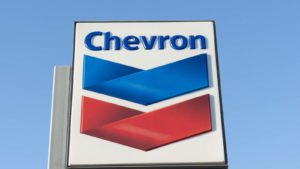The global energy market remains volatile with several developments pushing it in different directions. Crude oil prices are down to start the new year on news of a sharp price cut by Saudi Arabia and a rise in production among members of the the Organization of the Petroleum Exporting Countries and its allies (OPEC+). The price of Brent crude oil, the international standard, is currently trading at $76.80 per barrel, while West Texas Intermediate (WTI) crude oil, the United States. benchmark, is at $71.35 a barrel, down 14% in the last three months. While volatile, there are still plenty of the best energy stocks to buy for the savvy investor.
In 2023, crude prices topped out around $90 a barrel. The latest price drop comes on news that Saudi Arabia plans to cut the February official selling price of its Arab Light crude oil to Asia to its lowest level in 27 months, and on production increases in Iraq, Angola and Nigeria. At the same time, natural gas prices in the U.S. have jumped 13% higher year-to-date as militant attacks along the Red Sea shipping corridor that connects Europe and Asia through the Middle East escalate. The volatility has depressed the prices of many energy stocks. However, there are bargains to be found in the current market. Here are the three best energy stocks to buy in January 2024.
Occidental Petroleum (OXY)

Famed investor Warren Buffett continues to buy shares of Occidental Petroleum (NYSE:OXY) hand over fist. Regulatory filings show that Buffet recently raised his stake in the oil company to 34%. The Oracle of Omaha, as Buffett is known, began accumulating Occidental stock in early 2022, and now owns $13.9 billion worth of the company’s shares. Occidental Petroleum’s stock is currently at $57 a share and near a 52-week low. Buffett has aggressively bought the stock anytime the price falls to $60 or lower.
The decline in OXY stock is mostly due to weakness in energy prices, with crude oil trading around $72 per barrel, down from more than $90 a barrel last October. Buffett continues to take advantage of weakness in the price of Occidental Petroleum’s stock and is now the company’s largest individual shareholder. The legendary investor also ramped up his purchases in the oil producer after the company announced its intention to buy CrownRock, a privately held oil-and-gas company, for $12 billion.
OXY stock is down 11% in the last 12 months as the entire oil sector slumps.
Suncor (SU)

For a turnaround story, look to Suncor Energy (NYSE:SU). The Canadian oil producer’s stock looks to have bottomed in mid-December and has gained 7% in the past month. The move higher comes after the company took several steps over the past year to improve its business, including eliminating 1,500 jobs and replacing its CEO. The changes, along with a devastating cyberattack that temporarily crippled its network of retail gas stations, weighed on SU stock. However, it looks like the worst might be over.
The turnaround at Suncor comes after activist investor Elliott Management took a 3.4% stake in the company and began agitating for change at the troubled company whose stock has underperformed for many years. Going forward, Suncor’s management has said that it plans to continue focusing on cost cutting to help boost its earnings. The company is also reportedly planning to sell its retail gas station network, which could earn it $8 billion. SU stock is up 4% over the last 12 months.
Chevron (CVX)

Also near its 52-week low right now is the share price of Chevron (NYSE:CVX). The oil major’s stock has declined 15% since last October when the company announced that it intends to acquire rival Hess Corp. (NYSE:HES) for $53 billion in an all-stock deal. While Chevron and Hess have complimentary businesses, some analysts have questioned the purpose and long-term benefits of the deal, sending CVX stock lower amid growing uncertainty.
Despite some reservations surrounding the Hess deal , there are still reasons to be bullish on the outlook for CVX stock. The company has spent heavily to expand its reserves of oil and natural gas, and to build lower-carbon businesses. Also, once the Hess deal is finalized, Chevron plans to buyback $20 billion of its own stock annually, or about 6% of its outstanding shares. CVX stock looks cheap right now, trading at 10 times future earnings estimates and it pays a quarterly dividend of $1.51 per share, for a yield of 4.17%.
On the date of publication, Joel Baglole did not have (either directly or indirectly) any positions in the securities mentioned in this article. The opinions expressed in this article are those of the writer, subject to the InvestorPlace.com Publishing Guidelines.

